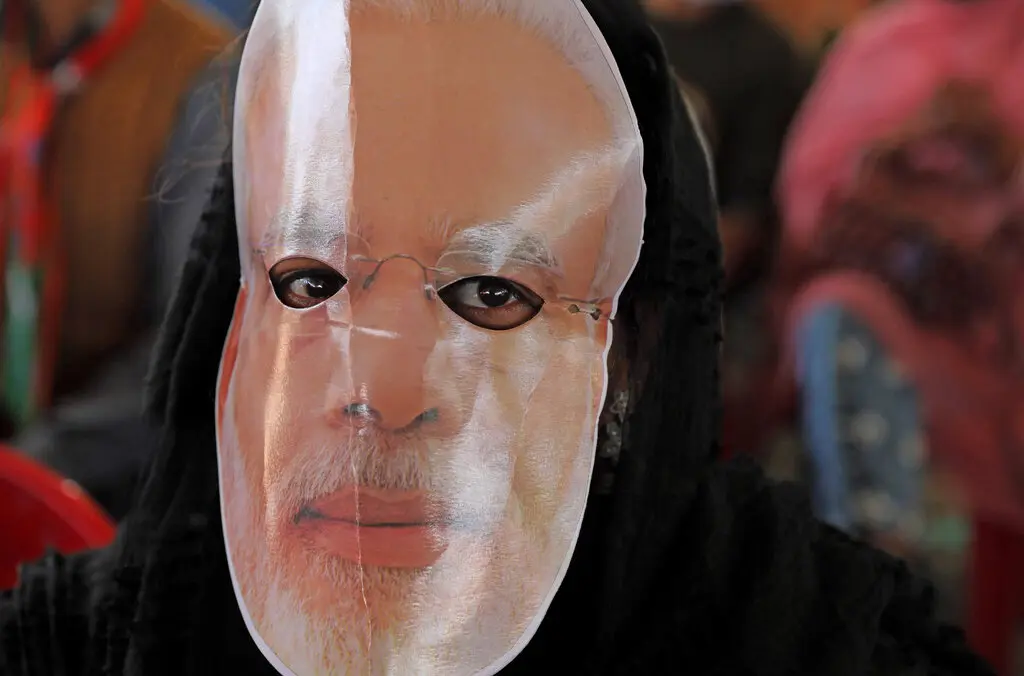
India, the largest democracy in the world, having a population of 1.4 billion people, has been plummeting down an authoritarian pathway for over a decade. Secularism, as the heritage of Indian state and pluralistic nature of India’s society as its trademark are on the brink of their extermination, due to indifferent and devastating policies of current political dispensation in India. A sudden sweep of ethno-nationalist rhetoric and corresponding plans for its wide scale proliferation are, against the spirit of the country’s integration, gradually destroying the deep spirit of unity that has kept it as a cohesive entity for a long time now. However, today’s reality can only bear witness to a record-breaking fascism across India. The dismemberment of democratic norms in the most populated state, which is also armed with nuclear weapons has now become a serious matter.
The revelations of the true path of India can only be made, if the historical past and social fabric is meticulously examined. The big-scale division of India in 1947, on the basis of Two Nation Theory, resulted in two separate countries of India and Pakistan. The reasons of this division were evident, Muslims and Hindus way of living life was different, the boundaries were absolutely clear, India started off as a secular state with guarantees for minorities ensured in its Constitution but has somehow gradually dived into a Hindu Rashtra with diminishing appetite for the rights of its minorities. The insidious force continues to do its work by finding this perfect environment for furthering the breach of the social and religious boundaries. Besides this, have been the factors that have led to the evolution and the discontent at a high rate. A big number of young people simply walk out of India but definitely some finish the cycle of rising income inequality at the end. Such opposition of current condition makes the grounds of populist narratives more fertile since they promise a magic wand to solve the complex dilemmas.
The recent statements of BJP’s bulwark Modi against the Muslim community in India, terming them as “Child Producing Factories” and “Infiltrators”, are the proofs of his parochial approach towards minorities in India.
Under the stewardship of Indian Prime Minister Narendra Modi, Bharatiya Janata Party (BJP)- a right-wing Hindu nationalist outfit, started to run the affairs of Indian politics in 2014. BJP’s Hindutva ideology represents Hindu Rashtra or a nation which should be a form of state. There exists a contradiction to secular doctrine of Constitution, which is shared for all faiths. The BJP plays with prejudices about the Muslims; they are depicted as a demographic problem and a security concern. This story appeals to the Hindu majority, especially when clusters of communal violence occur. It is due to the raising of such fears and worries that the BJP has succeeded in centralization of power and oppressing minority communities. The recent statements of BJP’s bulwark Modi against the Muslim community in India, terming them as “Child Producing Factories” and “Infiltrators”, are the proofs of his parochial approach towards minorities in India.
The rise of the BJP is inversely proportional to the systematic deterioration of India’s secular values. Carefully crafted policies of the Government and pronouncements once teetered upon the diverse religious fabric of the nation now more greatly depict the Hindu majority. This is reflected by various actions, with each of them playing a small role in undermining secularism. One of the instances is the Citizenship Amendment Act (CAA)-2019, which facilitates expedited citizenship for the countrymen from the neighboring nations, except for the Muslims.
The open religious bias has led to massive dissent and prolonged legal cases, which reflect the rising trend of contempt for the secularism guaranteed in the Indian Constitution. Furthermore, efforts to adopt textbooks, which are more Hindu-oriented and the role of the Government in this process, are creating certain fears. The educational institutions that have traditionally been secular, are now finding it on a path to restitute history in a manner that would glorify the Hindu past, while rejecting the contribution made by the other religious groupings. These sinister acts not only make a distorted history but also induce a feeling of disenfranchised and unrest among non-Hindu communities.
Also Read: India’s Election Rhetoric: Divisive Politics Threatening Democracy
The suppression of all forms of dissent under the BJP rule is highly alarming. One of the necessary conditions of the democracy to be considered healthy is ensuring that the people are free to express their opposition and keep the Government under control. In a way, India has gone back to the oppressive era, when free and critical voices were not allowed. Encompassing only issues featuring Government’s positive image, journalists, who refuse to defiantly report on opposing issues, face intimidation and harassment through legal threats and online trolling campaigns. Academicians and individuals, who ask for different theories other than Hindutva, are not welcome and are referred and addressed as non-nationalists, which is a dreadful allegation grossly damaging the national character.
This cold chill that creeps in free speech carries over to the digital realm as well. Social media sends out signals to be monitored as “seditious” contents may be censored or erased by the state. Consequently, this ever-increasing power over social media conversation engenders / curbs the flow of information and make it impossible for any serious discussion on the policies and activities of the Government to take place. An aggregate of such activities results in feelings of terror and mutual contraction of speech, which is an antithesis of a roseate and free country that India should have been known for.
An overwhelming presence of BJP in Parliament, functions mostly as a single stamp, making most important bills passed without proper debate or interest from opposition.
The systems of checks and balances that democracy stands for, are endangered or in grave danger. From a strong supporter of judicial authority, the courts appear to have failed in recent headline cases. Frequently, the judges who make rulings that go against the Government are subjected to greater influence and assault from such pro-Government media platforms. An overwhelming presence of BJP in Parliament, functions mostly as a single stamp, making most important bills passed without proper debate or interest from opposition. Such a parliamentary oversight that is not effective enough is seen as a failure on the side of the legislature because there is transfer of the power to the executive. Decision-making without accountability is feared and worries about the decay of transparency also prevail.
The BJP’s success is hinged on a populist style that works through emotional conservation of loyalties, while blaming outside elements. Modi is painted as a strong man, the “Hindu Hriday Samrat” (the emperor of hearts of people, who follow Hinduism), who gives the sense of pride and identity. This story line is commonly constructed in a manner that the majority Hindu community becomes one and the “other,” a term used to bias, is usually aimed at other religious minorities, especially the Muslims. This leads to the development of unsociable environment fraught with hate speech, violence and social ostracization. The tendency of spreading the seeds of division not only destroys the social integration but also undermines those democratic norms and principles, which secular India since its independence, has been endeavoring to uphold.
The democratic backsliding of India is not only a problem inside the country that raises questions about the lives of the citizens, it may also affect other countries in many other ways. An India with a stable democracy is playing a key role both at the regional level and on the global stage. The crucial position of India in the Indo-Pacific region highlights the significance of its democratic prosperity for the community of nations. Not to mention that India`s large, active civil society, which has a great tradition of being the symbol of democratic movements across the globe, is an additional source of hope. The particular aspect of its free media, active civil society, and its strong judicial validated the effect of promotional democracy in other developing countries. An Indian democracy that seems to be weakening, and with a civil society that is getting more and more vulnerable, may have a very negative impact on other democratic aspirations globally, and this will disrupt the cause of advancement of the democratic ideals.
To conclude, India hangs over a brink today. As the world’s largest democracy, it had once been a role model for pluralism. Now, the very basis of democracy is in jeopardy. Secularism, which stands at the base of the Indian Republic is fading amidst the rise of a majoritarian type of nationalism. However, the civil society is gallantly resisting the effective strangulation with a rather reluctant pace. Regrettably, that path will not be lined with feel-good slogans and lulling conversation. It demands a strong defence of the democratic principles, a continuous challenge to the divisive ideology of Hindutva and an unyielding detection of those, who are planning to dilute the diversity of India. International community cannot remain indifferent to this phenomenon. The democracy bulwark should be built at a joint initiative, a formidable condemnation of the enemies of democracy, and a powerful message that the world is against the destruction of Indian democratic principles will be sent. The fascist regime of Prime Minister Modi must be made accountable for all its crimes. The future of India, the largest democracy on the planet, is at stake, and so is the desire of millions, who struggle to live a truly free and equal life.
The opinions shared in this article reflect the author’s personal views and do not necessarily align with the institution’s official stance.





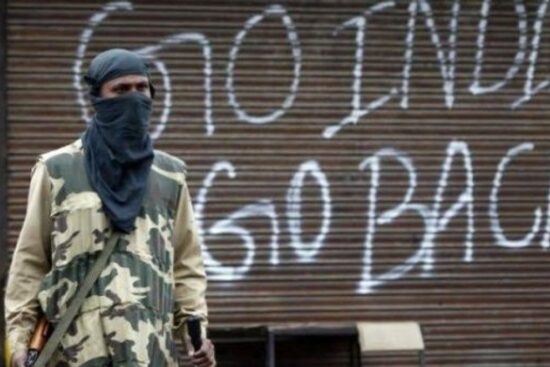
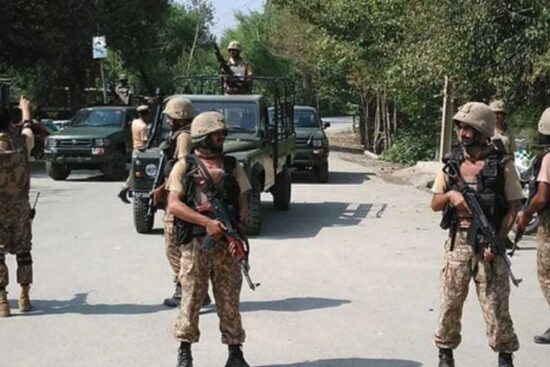
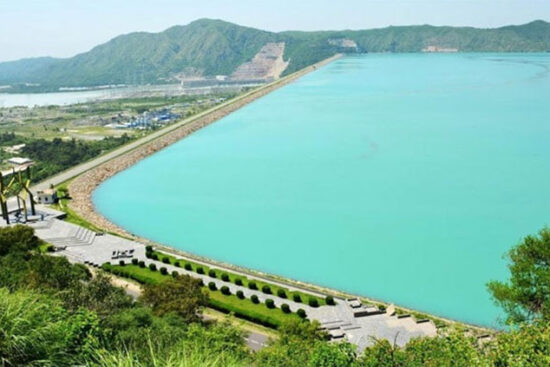
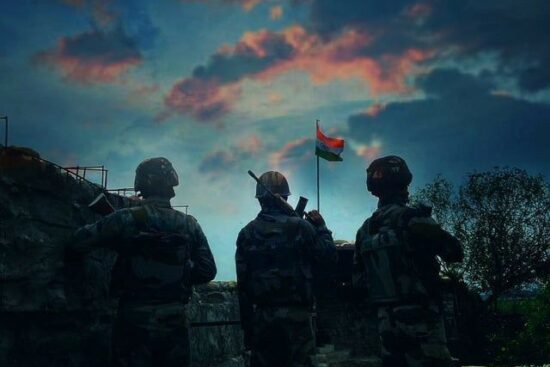








Leave a Reply